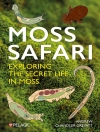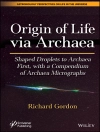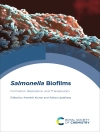Essentials of Biological Security
A guide to minimizing the threat of misusing benignly intended and dual-use biological research
In Essentials of Biological Security: A Global Perspective, a team of distinguished researchers delivers a fundamental resource designed to raise awareness and understanding of biological security as it pertains to the malign manipulation of benignly intended scientific research.
Written by experts who have spent decades involved in biological security issues, the book is systematically organized to make it accessible to a wide range of life scientists likely to encounter dangerous opportunities for the deliberate misuse of their research. Readers will also find:
* A thorough introduction to biological security and the chemical and biological weapons (CBW) threat spectrum
* Comprehensive explorations of the history of biological weapons from antiquity to modern day
* Practical discussions of dual-use technologies and how to minimize their risk
* Expert analyses of the Biological and Toxin Weapons Convention and other relevant international agreements and organizations
Perfect for professionals working in life sciences, medicine, global health, biosafety, and biosecurity, Essentials of Biological Security: A Global Perspective will also benefit anyone with an interest in and being responsible for biological security.
关于作者
Lijun Shang, Ph D, is Professor of Biomedical Sciences in the School of Human Sciences at London Metropolitan University, UK. He is the founding Director of the Biological Security Research Centre. His research focuses primarily on ion channels in the fields of health and disease.
Weiwen Zhang, Ph D, is Baiyang Chair Professor of Microbiology and Biochemical Engineering at Tianjin University of China, China. His recent research is focused on synthetic biology and governance of dual-use issues, and he currently serves as Chief Scientist of the National Key Research and Development Program of Synthetic Biology in China.
Malcolm Dando, Ph D, is a Fellow of the UK Royal Society of Biology. He is Emeritus Professor at the University of Bradford, UK and is the author of Neuroscience and the Problem of Dual Use: Neuroethics in New Brain Projects.












